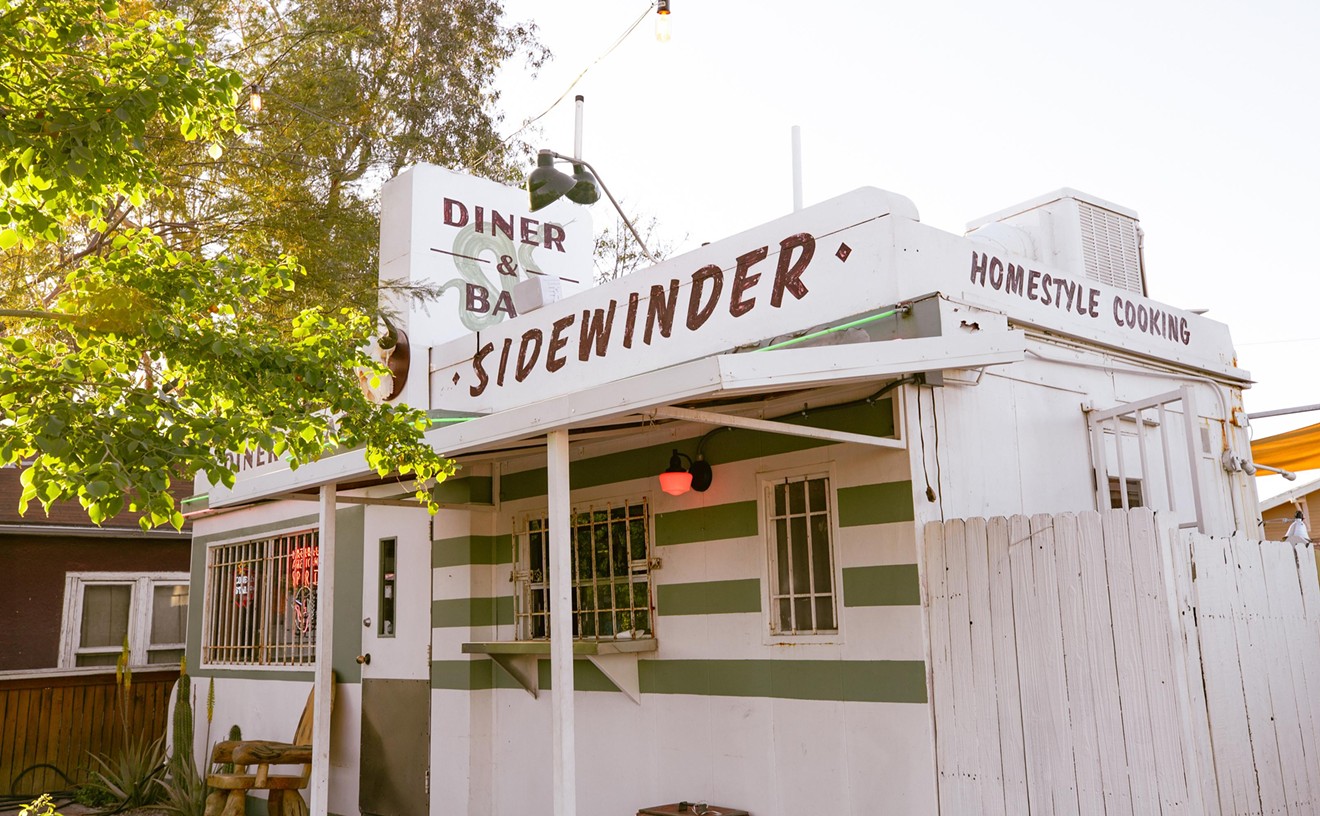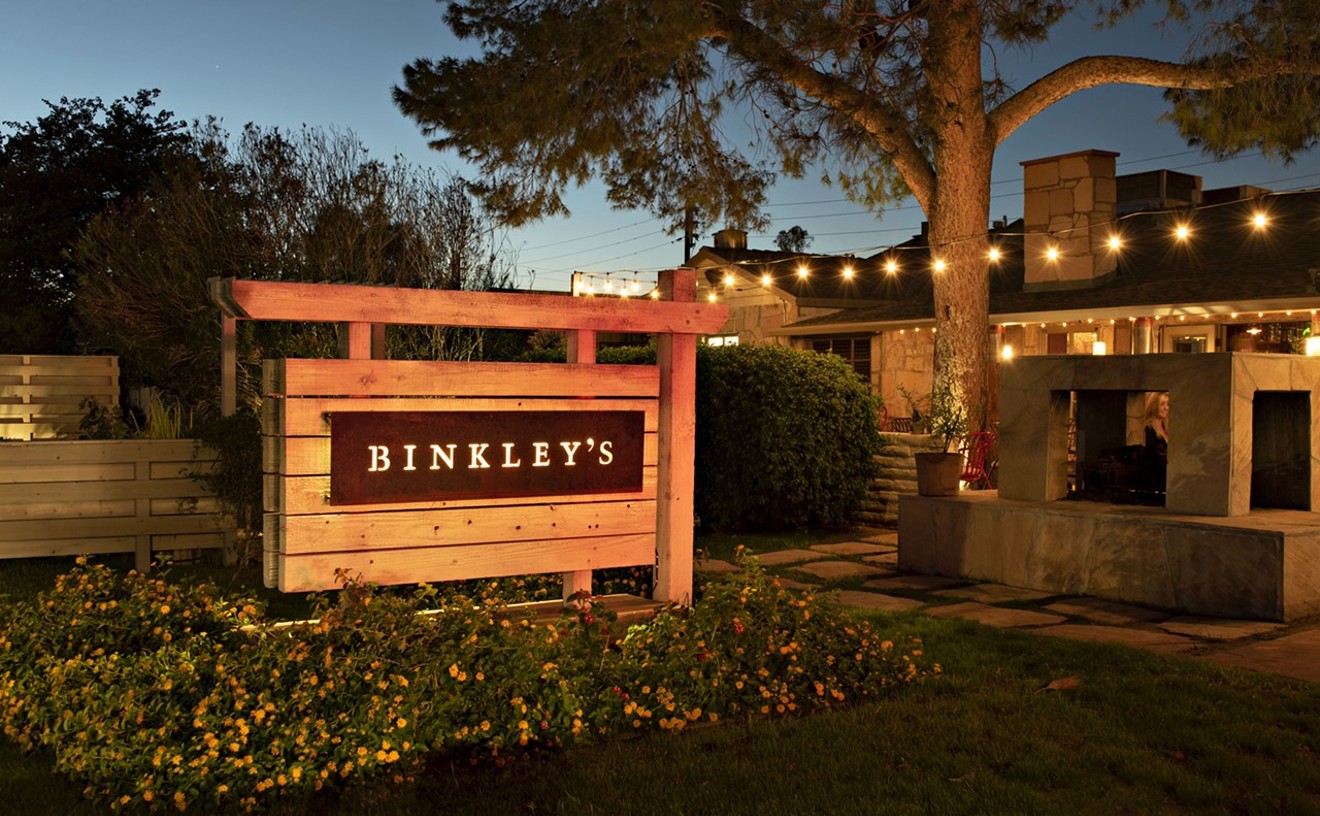New Zealand stuntwoman-turned-actress Zoë Bell is fully aware of her unique position as an action star who also does her own stunts. After working as Lucy Lawless' stunt double on Xena: Warrior Princess, Bell was discovered by Quentin Tarantino on the set of Kill Bill. After that, Bell has enjoyed prominence as one of stuntwoman-centric doc Double Dare's two subjects and played a major role in Tarantino's Death Proof. Now, Bell stars in, performs stunts for, and is producing Raze, a spartan, ruthless action film in which 50 kidnapped women fight each other in order to spare their loved ones. The Village Voice talked to Bell about being mentored by fellow stuntwoman Jeannie Epper, working with Quentin Tarantino, and stunt-doubling for Sharon Stone in Catwoman.
New Times: Raze is so refreshing because nobody really pauses to wink at you. It doesn't take much time to sentimentalize the characters' dilemma, or over-stress that you kick ass — but are a woman, too! Do you think that's true, that modern heroines are macho-types differentiated by their lady parts?
Zoë Bell: In Raze, there was no novelty to the fact that it's women kicking ass. For us, it was just: "This is the situation: This group of people believes in worshiping female strength by putting women in hideous situations." So you're dealing with women that are just forced to either fight or lose their loved ones. I think that was key for us, to be able to go forward without pausing and saying, "Look, it's a woman doing a spinning backflip kick!"
The actresses in [Raze] all loved the opportunity to play these women. Very few women would voluntarily go into this tournament, where people are killing people, without justifying it. I don't know if most of my guy friends would go into this tournament just to say that they won, but it's a little more of a male-driven thing than female. It's the male need to dominate just as much as it's the female drive to protect. That's probably very animalistic, but if this were real, that's what would be required to get these women to participate.
NT: You got your first major break stunt-doubling for Lucy Lawless in Xena. How do you think working on a show like that — and a show in general, one where you just sort of double the same woman for years — affects how you see the job offers you've subsequently gotten?
ZB: I was spoiled to work with an actress like Lucy, and I've since expected nothing from anyone else I was asked to double. [laughs] And I think it's also taught me not to baby the actresses I've worked with. By not doing that, you bring out the best in them. When I started working on the show, I was very green. You go to stunt school for a couple months, or a week. But being in a space where you get corrected for years . . . [laughs] It really gave me a great foundation in fight stuff, wire stuff — things to fall back on.
There's an etiquette, or rules, that come with the fraternity or sorority way of learning that was foreign to me. It was amazing to meet all the women here [in America]. Some of the old-school [stuntmen] here are amazing, but the women . . . in New Zealand, we weren't really allowed to do [stunts]. They really paved the way and gave women like me the luxury of saying that working in a male-dominated world isn't that bad, really.
NT: You have credits as a stunt double, stuntwoman, stunt coordinator. What kind of work went into each title? For example, what did coordinating stunts for Bitch Slap entail? Did you show the other actresses how to punch, how to fall, that kind of thing?
ZB: That was a very low-budget show; bigger-budget shows allow you to delegate, so you can get a fight choreographer, or head rigger. We didn't have the budget for that, so I taught the fight moves to the girls. So it was coaching the girls on how to throw a punch, so it hopefully looks like it's doing some damage. Being the head coordinator on a film like that was really special, in that I could relate to the extras. I'm not going to ask something of them that I don't think they're capable of. And when I say, "Look, you can do this," they trust me as a woman who's done it.
Usually, what happens with women that aren't comfortable with fighting is they're afraid of getting hurt or hurting someone. All it usually takes to get them going is to make them feel safe and make them feel like they look cool while doing it. And once they get a little more comfortable, they're gung ho! [laughs]
NT: What's the most comfortable set you've worked on?
ZB: That's a rough one, man. I'm pretty comfortable on any set where I have something to do. This may sound conceited, but the more predominant the role, the more comfortable I am on set. Early on, I felt uncomfortable because I didn't know if I was doing it right or in the right spot . . . it wasn't my workspace at that point. But now, if I'm doing background stunts, I'm comfortable doing whatever the stunts are, or doubling people. It's all relative. So based on that, the set of Raze was horrific in some ways. [laughs] It was difficult and demanding putting in so many hours on set. I think I wasn't that comfortable being both the producer and the lead.
Other than that — Quentin. I was on the set of [Django Unchained] the other year, just for a couple of days. And it was like walking into a family reunion. I literally breathed a bit easier when I was in costume, and on set.
NT: What was doubling Sharon Stone in Catwoman like?
ZB: I was happier than a pig in shit. We got along very well. It was the first time I worked with someone that had a taste of diva status. It felt like I was working with a real movie star. I didn't see her be nasty or cruel to anyone, but she carried weight walking around places. And I was very aware of that. I was very fortunate in that she dug me as much as she did. [laughs]
NT: At the end of Double Dare, you say that you've grown more comfortable working in Hollywood. But after making Death Proof, you've said that you think of yourself as a stuntwoman who also does talky stuff, too. Has working in front of the camera as an actress that also does her own stunts behind the scenes become normal?
ZB: It's so funny, just hearing you say that, I thought, "Maybe I should never say anything on record ever again." [both laugh] Clearly things change. Someone showed me a quote the other day where I said, "I've become more comfortable with Hollywood, but I'll never feel at home." And I thought, "Yeah, yeah, yeah, but I've been living that for 10 years now!" And in the last two or three years, I feel more like an actress that does her own stunts than a stuntwoman that also does acting. It's a fundamental shift that happened that's comfortable now, but it took some shifting around in my skin to get here. Yeah, I'm enjoying acting now.
NT: There's that bit in Death Proof where you, after beating up Stuntman Mike's car, have this big grin on your face. You looked really comfortable then!
ZB: That's a testament to being on a Tarantino set. But it's also having Quentin be both the director and the writer of my character as well; he knows me. I had no formal training or experience. All I knew was I had one conversation with Quentin where I said, "I'm putting it all in your hands, because I don't know what I'm doing." And he said, "I know you have what I need, and I know how to get it." So I said, "Great, do what you like."
But you can only go along like that for so long until you do the next acting role, and you're working with someone who is not such an actor's director, or just expects you to turn up, and doesn't want to coach you through it. That was a really lucky and comfortable place for me to be. Because as reluctant as I was — because I was shitting my pants about facing the camera for the first time in my life — I can't imagine a more supportive place to do it.
NT: Is stunt coordination the next big thing for you?
ZB: No. I love it, but I'm definitely more on the acting track. After Raze, I've got a couple more ideas I'd like to produce. I've always loved the collaborative side of filmmaking, and there's a lot of things I can do in the acting side of things in terms of the creating of action sequences and coming up with ways of doing things with a stunt coordinator. I've discovered that creating characters involves working with writers and directors on characters' backstories: who the person — your character is — and who she might end up being. And then the producing part of it is just creating stuff, and telling stories. It's hard work, and there's so many people out there trying to do the same thing that think it's just hanging out in a Jacuzzi, saying, "I'm going to create stuff! Watch me be a producer!" But I really enjoy the process.










